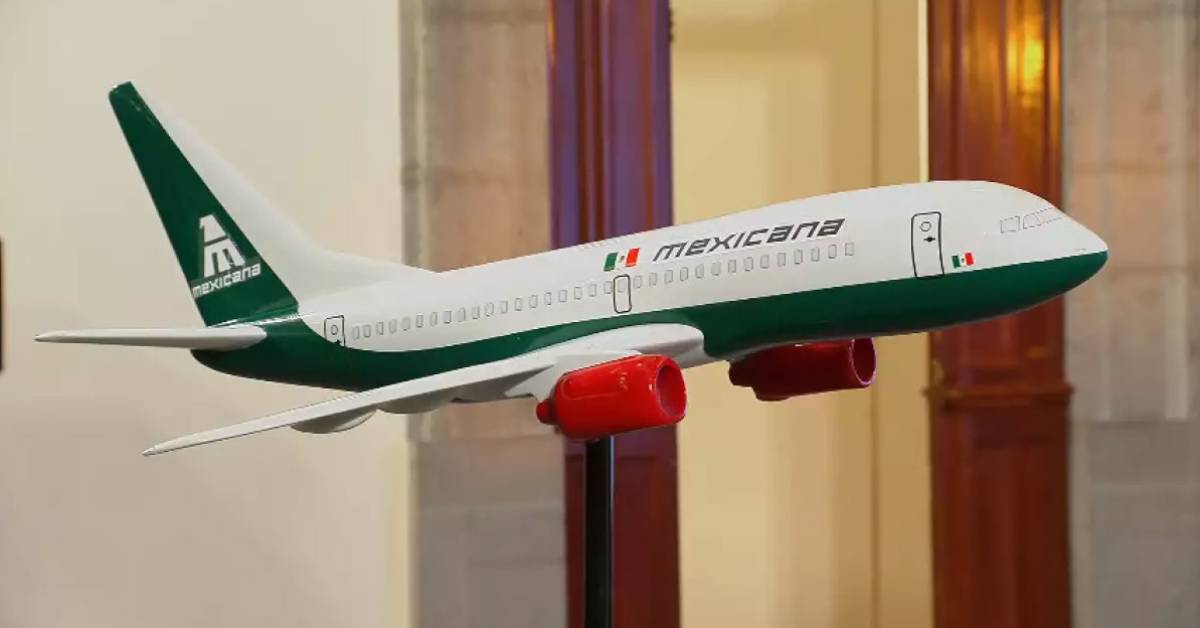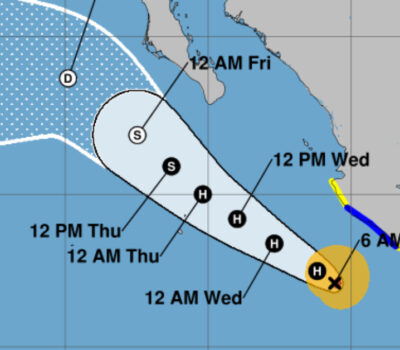Puerto Vallarta, Mexico – In a stark reminder of the challenges inherent in revitalizing a struggling airline, Mexicana de Aviación ceased operations on eight routes as of January 6, just over a year after the federal government launched its ambitious plan to relaunch the airline. Operating under the oversight of the Ministry of National Defense (Sedena), Mexicana’s performance has fallen far short of expectations, reigniting debates about the viability of state-run enterprises in the aviation industry.
A Tumultuous History
Mexicana de Aviación’s woes are not new. The airline’s first crash occurred on August 28, 2010, when it declared a total cessation of operations. At the center of this debacle was Gastón Azcárraga Andrade, who acquired the airline in 2005 from Vicente Fox’s administration for $165 million through Grupo Posadas. Under Azcárraga’s ownership, the airline spiraled into financial ruin, eventually entering bankruptcy proceedings in less than five years.
By April 2014, the airline was declared bankrupt by Judge Edith Alarcón. The collapse left thousands of employees and retirees without severance pay, sparking widespread protests. Meanwhile, Azcárraga fled to the United States, leaving Grupo Posadas in the hands of his brother and selling off his assets to avoid accountability.
A Troubled Comeback
The federal government’s 2023 decision to revive Mexicana de Aviación was met with skepticism, and the airline’s first year of operations has done little to assuage critics. Under the leadership of military officer Leobardo Ávila Bojórquez, Mexicana transported only 382,011 passengers—just 13% of its ambitious annual goal of 3 million passengers by 2027.
The airline’s market share remains negligible at less than 1%, and its financial losses have surpassed 900 million pesos. Despite these figures, the suspension of eight key routes—Acapulco, Campeche, Guadalajara, Ixtapa, Nuevo Laredo, Puerto Vallarta, Uruapan, and Villahermosa—has been described by the airline as part of a “strategic review.” The routes were previously serviced by Querétaro-based TAR Airlines, which managed flights under a private contract.
Observers are questioning whether Mexicana’s limited success and significant financial losses justify continued investment, especially as federal revenues face increasing strain.
Broader Economic Implications
Mexicana’s struggles come at a time when Mexico’s state-owned enterprises face mounting financial challenges. Pemex, the state oil company, reported its lowest crude oil production in 45 years as of November 2024, producing just 1.488 million barrels per day. This represents a stark decline not seen since 1979, during the administration of José López Portillo.
Pemex’s financial troubles are compounded by a debt crisis. The company owes $20 billion to suppliers and contractors, with an additional 6 billion pesos owed to the Union of Oil Workers of the Mexican Republic. Rating agencies have warned of potential default, as Pemex’s short-term debt stands at $359 billion, leaving the government with two unpalatable options: refinancing at high interest rates or declaring default.
Public Criticism and Future Prospects
The challenges faced by Mexicana and Pemex have fueled public criticism of state-run enterprises and their ability to operate efficiently in competitive markets. Mexicana’s inability to meet performance targets and Pemex’s spiraling debt highlight systemic issues in management and oversight.
While the government continues to defend its interventions, critics argue that pouring public funds into struggling enterprises is unsustainable. The suspension of Mexicana’s routes and Pemex’s declining oil production underscore the need for comprehensive reforms to address inefficiencies and restore public confidence.
As Mexicana de Aviación approaches its second year, questions linger about whether the airline’s revival is a strategic endeavor or merely a symbolic gesture destined for failure. Meanwhile, Pemex’s precarious financial state poses significant risks to Mexico’s economy, further highlighting the urgent need for fiscal responsibility and innovative solutions.
Puerto Vallarta, Mexico - In a stark reminder of the challenges inherent in revitalizing a struggling airline, Mexicana de Aviación ceased operations on eight routes as of January 6, just over a year after the federal government launched its ambitious plan to relaunch the airline. Operating under the oversight of the Ministry of National Defense (Sedena), Mexicana’s performance has fallen far short of expectations, reigniting debates about the viability of state-run enterprises in the aviation industry.












